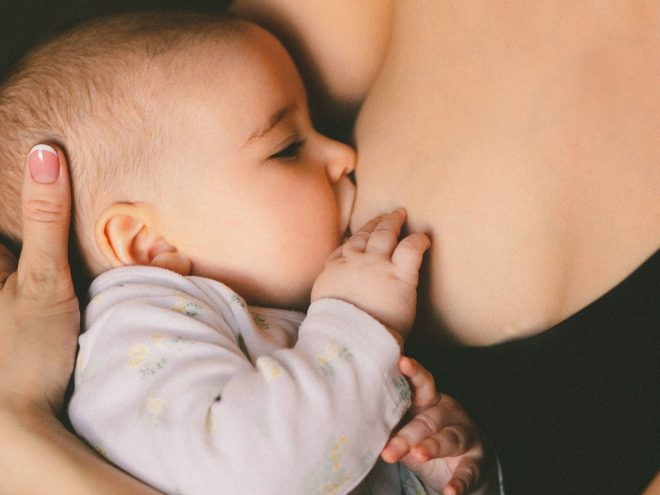Let’s be real here. Raising a kid from infancy to adulthood is freaking expensive. There’s no way around it. The average cost of raising a child for a middle-class family is $233,610, which is nearly a quarter of a million dollars over 18 years.
Now that you’ve picked your jaw up off the floor after seeing that number, I’ve got some tips for you to make baby financial planning a little bit easier. These are tips that I wish I’d read before I had my first child five years ago — but better late than never, right? You don’t need to have a quarter-million dollars in the bank before you have your little one. Here’s why.
Look at Your Health Insurance
While having a kid isn’t as expensive as raising one, it will still take a decent chunk out of your wallet if you don’t have good health insurance. A healthy natural birth with no complications can set you back upwards of $8,200, and that number goes up with the number of painkillers and other medical interventions required throughout the birthing process.
Take a close look at your health insurance plan and see just how much is covered by your policy. Will you be responsible for prenatal care out-of-pocket? How much of the actual birth and hospital stay does your policy cover?
Invest in a 529 Plan
If raising a child is expensive, sending them to college is downright terrifying.
On the low end, you’re looking at spending at least $25,000 for a four-year state college, and more than $50,000 for a private school. If they’re heading to an out-of-state college, the price gets even higher, since colleges charge more per credit hour for students from different states. If they get into an Ivy League school, you’d better hope they get a scholarship to go with it.
The solution may be a 529 plan, which is to college what 401(k) plans are to retirement. It’s an investment account that allows you to save money for your child’s future college education, and you can set one up as soon as they’re born. Look into the types of 529 plans that are available in your state and then start saving.
Write a Damn Budget — Or Update Your Current One
If you don’t already have a budget — why? Budgets are easily one of the most useful tools in your financial arsenal, so take the time to set up a budget to account for new baby expenses. And if you do already have a budget in place, make sure you take the time to update it to account for all the expected and unexpected expenses that come with adding a member to your family.
Don’t Forget the Registry
Baby supplies are expensive and everyone will be asking what they can get for you —especially if this is your first child. As soon as you announce your pregnancy, set up a baby registry and send it to friends and family. This will keep you from ending up with duplicate items and stave off the endless repetition of”What should I get you for your baby shower?”
Trust me on this one — constant annoyance plus pregnancy hormones could potentially equal homicide, so try to minimize it wherever possible.
Have Some Savings
Financial experts recommend having at least six months’ worth of income saved up before you start attempting to conceive a child. This tip sounds great, but if you’re living paycheck-to-paycheck, it’s not always possible.
This is where that budget from tip number three comes in. Figure out where you can cut corners and save some money so you’ve got a nest-egg to fall back on if you’re out of work for a while or have some unexpected expenses.
Don’t Forget About Retirement
It’s tempting to put all of your other plans on the back burner when you’re preparing for a baby, but you don’t want to neglect yourself or your future. That is, unless you want to be one of those elderly parents living in their kid’s basement as a live-in babysitter.
Saving for your kids is a noble endeavor, but it shouldn’t be the only savings account you have. Don’t forget to take care of yourself and your spouse, too.
Update Your Beneficiaries
Chances are good you already have a will or a life insurance plan. If you do, once your little one is born, it’s time to update your beneficiaries. No one wants to think that something will happen to them before they’ve had a chance to raise their child. But if something does, it’s always better to be prepared.
Contact a lawyer or an accountant and update your paperwork as soon as you’ve got a Social Security number for your new little bundle of joy.
Plan for Maternity Leave
Having a baby is rough on your body. If the doctors don’t even want you to have sex for six weeks, you probably shouldn’t be going back to work during that period either. Make sure you’ve got enough vacation time — or FMLA time — to heal, recover and spend time with your little one after they’re born.
Be Ready for ALL the Expenses
There are so many expenses that come with having a new baby that you might find your head spinning. Diapers, clothes, furniture, toys, medicine, doctor’s appointments — the list goes on and on. The average infant uses 2,700 diapers in their first year alone — and diapers usually come in boxes of 48 and cost $15 to 20. Add that up. That’s $843.75 just on diapers, and that’s if you buy the cheap ones.
One Closing Thought: You’re Never Ready
You can spend all the time in the world preparing for your first, second or fifteenth child, but when it comes down to it, you’ll never really be 100 percent ready. The best thing you can do is prepare as best you can and keep up with things like your budget and your savings. Adding a baby to your family is a life-changing experience, but it doesn’t have to leave you broke.





